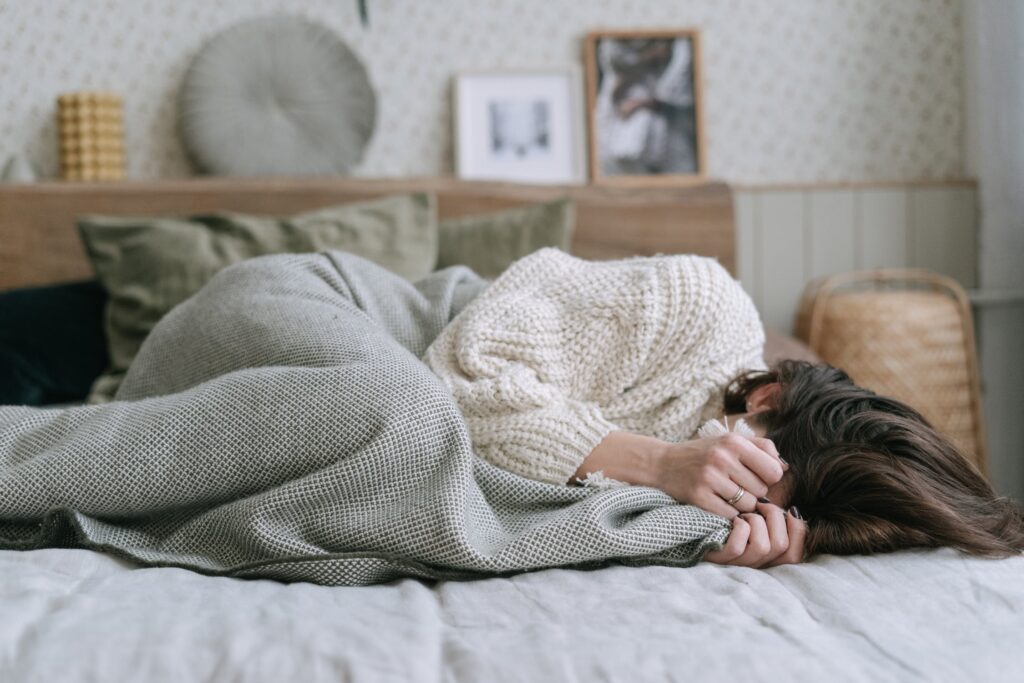Sleeping Well: The Right Behaviours, Treatment and Health Supplement for Insomnia

According to stats produced for Insomnia Awareness Day{i}, up to 35% of adults struggle with Insomnia, and lack of sleep is becoming a nightmare for many. Whether down to modern day stresses, a poor diet or the introduction of technology (or simply an inability to turn off), insomnia can affect every aspect of a sufferer’s life.
Technology in particular has been a double-edged sword. Generally speaking, technology has improved life no end, giving us more free time and facilitating multiple activities that, back in the day, were very difficult to fulfil. Nowadays we can watch a movie in the comfort of our homes without having to go to a cinema and staying in touch with family and friends is now much more doable thanks to social media and the wonders of modern communication.
Even traditional pastimes like listening to music, reading a book, as well as drawing or creating content can be done in new and different ways thanks to technology, and for some people, it is what allows them to work on a daily basis, even more so since COVID-19 and lockdown – technology enabled us to bridge the gap between work and home, eliminate the commute and continue to work as normal even when our physical workplaces were closed for many – so tech has been good in so many ways.
However, like most innovation, tech has brought a downside. Home workers may not even open the curtains, living in permanent darkness, and we may not venture outdoors as frequently as we once did. Our levels of exercise may be reduced, and despite the apparent ‘rest’ from the lack of a commute, many workers find themselves more tired yet sleeping less, lacking Vitamin D from the sun, and more stressed from feeling ‘always on’ with our handheld devices, even if we switch off our computers at 5pm (and many of us don’t!) These devices often emit a particular type of light that can contribute to insomnia.
How to Properly Deal with Insomnia
It is not enough to just sleep, but getting the right kind of sleep that matters. There is no quick fix for insomnia and it is best tackled by engaging in a healthy lifestyle, with a nutritive diet, a healthy sleeping schedule, and of course, a routine that doesn’t go against it.
Some people also find relief from taking health supplements – these will often also improve your overall physical health, making it easier for you to enjoy a high quality of sleep. We will cover some of the supplements you can take to improve your sleep, but there’s a particular type of medication that, in comparison to sleeping pills, can provide great sleeping benefits without causing too many side effects: CBD. You can check cheefbotanicals for more information on this.
Now, that being said, let’s talk about some of the other changes you can make to tackle insomnia and restore healthy sleep patterns.
Lifestyle Changes: Healthy Sleeping Schedule
A healthy sleeping schedule is essential to combat insomnia. The human brain is geared up to adapt to routine, which is great, if we can develop a healthy routine and a regular sleep pattern, our complicated brain and body will adapt. However, when we have insomnia and have adapted our sleeping schedule to stay alert and awake our bodies will have adjusted to this pattern. Relaxing, getting a bedtime routine and switching off devices will all help our bodies re-adjust.
Ideally, one should seek to rest during the night to improve the quality of sleep significantly. This, of course, doesn’t apply to everyone since there are people who are definitely more productive at night/early morning.
Encouraging the body to sleep and to be awake at consistent times can make a big difference, so try to turn off a few hours before bed, wind down and create a routine that works for you and your particular circumstances, and follow through with it.
Increase Exercise and Reducing Naps
As shown at https://www.webmd.com/women/guide/insomnia-tips, one of the most recommended things to do when fighting insomnia is engaging in physical activity and reducing naps. Insomnia is commonly described as the difficulty to fall asleep, and tiredness often makes it easier. Tiredness is commonly labelled as the state in which are physically or mentally exhausted.
Through engaging in regular exercise and reducing naps, we will spend more energy during the day and ensure that our body is tired of when we are going to rest. That can be an incredible advantage when tackling insomnia.
Is your diet sabotaging your sleep?
Believe it or not, what you eat can greatly affect your quality of sleep, even more so if you are eating and drinking in the evening.
Food and drinks containing a lot of sugar and caffeine can act as a stimulant, which can make it very difficult for you to fall asleep. There’s also the fact that eating right before sleeping can trigger physiological responses with the same effect.
Ideally, you shouldn’t drink caffeinated beverages, nor eat or drink sugary things before sleeping. Try to avoid eating 2 to 3 hours prior to sleeping as well, since it can make things easier for you.
Why is tech a problem?
Modern technology can have a similar effect. Smartphones, TVs, laptops, and computers can cause your brain to react as if it was still daylight, making it work as if sleeping is still far from happening. Take one technology-free hour before sleeping if possible, and think about doing more restful activities like meditation or reading.
Supplements and Food
There are way too many natural sleep aids to mention them all, but it’s worth exploring the benefits of Omega-3 fatty acids.
Omega-3 is a group of fatty acids that can only be obtained through eating fish, because our body can’t produce it on its own.
Many people in the US and UK are deficient in this group of nutrients as they don’t eat enough fish, indeed many don’t eat fish at all. Thankfully, supplements are widely available and can restore the balance. As well as helping with insomnia, these supplements and proven to help lower blood pressure, reduce triglycerides, slow the development of plaque in the arteries, and reduce the risk of a heart attack and stroke.
If you are struggling with insomnia, it’s therefore common sense to take a look at whether you are getting enough Omega 3.
Sources:
(i) https://sleepeducation.org/insomnia-awareness-day-facts-stats/
Image credit: Pexels





